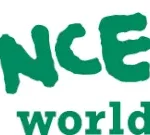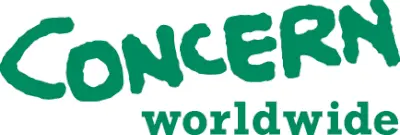
Concern Worldwide
Background and context
The prevalence of global acute malnutrition (GAM) among children under-five remains persistently high in the Arid and Semi-Arid Lands (ASAL) of northern Kenya, despite improvements in other areas of Kenya over recent years. Marsabit and Isiolo counties are among the most affected of the ASALs. In both counties, the GAM prevalence has been at either the critical (15%–29.9%) or serious (10%–14.9%) phase of acute malnutrition based on the Integrated Phased Classification (IPC) according to annual surveys for most of the past ten years (2010 – 2019).
Coverage of services for severe acute malnutrition (SAM) and moderate acute malnutrition (MAM) has been sub-optimal for much of that period. Despite progress, many challenges remain and surveys indicate that only between half and two-thirds of children suffering from acute malnutrition are accessing essential treatment in ASAL areas.
A major obstacle to the early detection and treatment of acute malnutrition is that caretakers of young children often do not know their child is malnourished and would be admitted to treatment services if brought to the health facility. In most settings, including Kenya, caretakers rely on Community Health Workers (CHWs) or Community Health promoters (CHPs) to screen and refer children using a mid-upper arm circumference (MUAC) band at community level. However, the network of community workers and volunteers are generally overstretched and under-resourced, meaning many malnourished children are identified very late or not at all.
The Family MUAC approach
The Family MUAC approach supports caretakers of children under-five to regularly screen their own children for acute malnutrition using a MUAC band, rather than waiting for a community worker or promoter. Mothers are trained to take and interpret the MUAC measurement themselves and bring their child to the health facility if they find their child to be severely wasted (marked red on the MUAC band) or moderately wasted (marked yellow on the MUAC band). With these skills, mothers can identify malnutrition early and be confident when they make the often long journey to the health facility, it will be worth the journey. The Family MUAC approach has been rapidly scaling up since first piloted in Niger in 2011 by the NGO ALIMA. Several studies across West Africa have shown mothers can accurately screen their children, and operational experience suggests that Family MUAC has the potential to promote earlier detection and better recovery of wasting.Family MUAC was first piloted in Kenya in 2017, and the Kenya Ministry of Health (MoH) endorsed the approach as a longer term strategy, following scale up during the COVID-19 pandemic.
- Operational study on Family MUAC planned in Northern Kenya (2022-2023)
Building on the success of a previous study in Northern Kenya led by Concern with funding from the innocent Foundation, the proposed research aims to generate evidence on the effectiveness and cost-effectiveness of integrating the Family MUAC approach into standard Community Health Volunteer (CHV)-led screening and referral for acute malnutrition. By comparing this novel, integrated approach to the current status quo which relies solely on CHVs to screen and refer children at community level, Concern aims to generate practical evidence and recommendations to help the Kenya health authorities at national, county and sub-county level make informed plans to scale up the Family MUAC approach and how much it is likely to cost.
Main research questions for the study:
-
Primary Question**:**
Is screening of children under five for acute malnutrition by mothers/ carers combined with standard CHVs more effective (improved screening, referral and treatment coverage) and cost-effective (lower cost per Disability-Adjusted Life Years ,DALY, averted) than screening by CHVs alone in the ASAL context (Marsabit County)?
-
Secondary Questions**:**
- Timely/ early detection: Does mother/carer-led screening combined with CHV screening lead to earlier detection of children with acute malnutrition than by CHV screening alone in the ASALs?
- Appropriate referral action: Can mothers/ carers take appropriate action based on screening results (i.e. decide to refer/ not to refer) with at least the same accuracy and consistency as CHVs in the ASALs?
- Accuracy of screening: Can mothers/ carers screen their own children with at least the same accuracy as CHVs in the ASAL context?
- Frequency of screening: Can mothers/ carers screen their own children with at least the same frequency as CHVs in the ASAL context?
- Sustainability: What are the challenges and motivators that influence a mother’s/carer’s ability to screen regularly and accurately and refer correctly and to sustain the behavior over time?
- Integrated implementation model: What is the most effective and efficient implementation strategy to promote mothers/ carers and CHVs working together to screen and refer children?
Main methods for the Family MUAC study
The operational research approach will take place of 12 months in North Horr and Dukana Wards in North Horr sub-county and combine qualitative and quantitative methods to answer the above research questions. The main quantitative method will be a cross-sectional survey of screening agents (Family MUAC trained caretakers and CHVs) at baseline (early 2023), midline (mid 2023) and end line (early 2024) to assess the three main study outcomes: screening coverage, referral coverage and treatment coverage of children suffering from wasting. These will be complemented by a smaller study to further assess accuracy of caretakers’ MUAC measurements, compilation of health facility data to understand referral patterns and focus group discussions and key informant interviews.
Purpose of the Consultancy
The consultant will work with the Concern team and government counterparts to further refine data analysis plan and tools as per the study protocol, finalize end line survey report and support in development of publication manuscript
Objectives and Specific Tasks to be undertaken by the Consultant(s)
Main objective of the consultancy: To support the finalization of the Family MUAC operational study survey, data analysis plan, finalization of end line survey report and publication manuscript by end of May 2024.
Specific objectives of the consultancy
- Conduct areview of ongoing routine data collection tools to establish if they answer all research questions.
- Support team to finalize the end line data collection tools to optimize the final analysis.
- Provide technical support to trainers for the data collection team.
- Prepare an analysis plan for the end line survey to answer the key research questions on outcomes related to screening coverage, referral coverage and treatment coverage and others as outlined in the study protocol. The analysis to optimize the potential to use the datasets as ‘panel’ data where at least some of the same children have data from multiple time points.
- Combine/ harmonize the baseline, midline and end line datasets using the HH/ Child Unique identifier.
- Analyze the qualitative data and produce a report with summary findings.
- Analyze the final baseline-midline-end line dataset and produce an end line report with summary findings, specific results (including statistical comparisons of intervention vs. comparison group) and methods used.
- Combine/ harmonize the baseline, midline and end line datasets using the HH/ Child unique identifier.
- Support the development of dissemination materials including publications, project briefs
Lines of Communication
The consultant will work closely with the Programs Director and Health and Nutrition coordinator**.**
Timeframe
The consultant will be engaged for 30 days to support Concern Worldwide in the finalization of the Family MUAC operational study survey, data analysis plan, finalization of end line survey report and publication by end of May 2024. If the consultant is already based in Kenya, the preference is for a combination of remote and face-to-face working. If the consultant is based outside of Kenya, the work will be remote.
Essential and Desirable Experience/Qualifications
- A relevant degree in epidemiology, statistics or other related discipline.
- Previous experience supporting nutrition data analysis in a developing context such as Kenya (in Kenya is preferred)
- Advanced knowledge of descriptive and statistical analysis and study methods
- Advanced knowledge in qualitative data analysis and study methods.
- Experience developing detailed operational research tools and analysis plan.
- Strong and concise writing skills
Required documentation with your proposal:
- Company / Consultant profile
- Certificate of Incorporation (firms) or National ID card (individual)
- Valid Tax Compliance Certificate
- PIN Certificate
- CVs of key staff
- Certificate/reference information of previous undertakings of similar contracts with NGOs/UN agencies
- Safeguarding Policy, Code of Conduct etc. or what are the necessary provisions have you put in place to keep everyone safe in the course of your engagement.
- Attach copy of Certificate of Good Conduct or proof that you have applied for the same
- A detailed work plan with milestones
- Confirm the gender ratio for the team that you will be engaging in this exercise
- Technical proposal
- Financial proposal
- Evidence of previous related works in Marsabit, Turkana & Samburu Counties (e.g. Technical design reports)
- Work plan (Gantt chart) showing specific milestone
How to apply
Interested candidates, who meet the above requirements, should submit their proposals by email to;
With the subject line “SR104841 – Consultancy to Support Family MUAC Research Study” by 20th February 2024.
Concern Code of Conduct and associated policies
Concern has an organisational Code of Conduct (CCoC) with three Associated Policies; the Programme Participant Protection Policy (P4), the Child Safeguarding Policy and the Anti-Trafficking in Persons Policy. These have been developed to ensure the maximum protection of programme participants from exploitation, and to clarify the responsibilities of Concern staff, consultants, visitors to the programme and partner organisation, and the standards of behaviour expected of them. In this context, staff have a responsibility to the organisation to strive for, and maintain, the highest standards in the day-to-day conduct in their workplace in accordance with Concern’s core values and mission. Any candidate offered a job with Concern Worldwide will be expected to sign the Concern Staff Code of Conduct and Associated Policies as an appendix to their contract of employment. By signing the Concern Code of Conduct, candidates acknowledge that they have understood the content of both the Concern Code of Conduct and the Associated Policies and agree to conduct themselves in accordance with the provisions of these policies.
Deadline: 20-Feb-24

